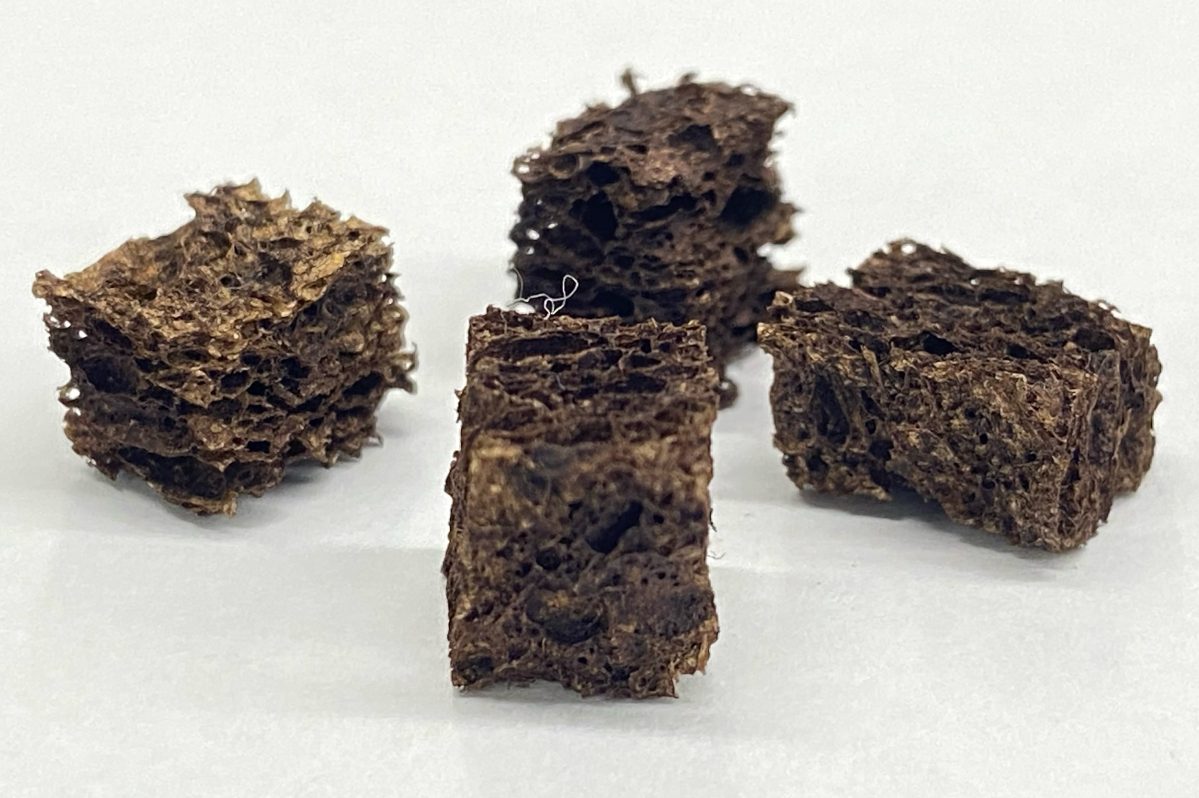The technology could advance the recovery of critical minerals from mining waste.
Researchers from Northwestern University in Evanston, Illinois, have developed a new sponge that can remove hazardous metals like lead from polluted water, leaving potable water behind. The scientists reported their findings in a paper published in the water research and policy journal ACS ES&T Water, stating that they tested the sponge and successfully removed lead to below traceable levels from heavily contaminated samples of tap water. In their experiments, the researchers were able to reuse the same sponge for multiple cycles after recovering the fragments.
Coat – Rinse – Repeat
The team synthesized mixtures of manganese-doped goethite nanoparticles and other compositions of nanoparticles and applied these slurries onto commercially available cellulose sponges. After washing away any excess amounts, the final coatings had a thickness of only a few tens of nanometers. The nanoparticle-coated sponge effectively isolated lead ions when submerged in polluted water and after the Researchers rinsed the sponge with mildly acidified water afterwards, the sponge released the absorbed material, making it ready for another soaking cycle. Although the absorbing abilities declined after the first use, the sponge still recovered more than 90 percent of the ions during subsequent test cycles, according to Vinayak Dravid, senior author of the study.

Sponge coated with nanoparticles (left) next to an uncoated cellulose sponge.
Photo: Northwestern University
From Cleaning Contaminated Tap Water to Recovering Critical Minerals?
Dravid cites public health as the primary motivator for the study. However, besides cleansing contaminated drinking water, the metal-absorbing abilities of the sponge could prove beneficial for the future of critical mineral recovery: Mine tailings, for example, still contain rare earth elements (REE) and other critical minerals. Thus far, the recovery of these raw materials has not reached widespread application but companies around the world are trying to find viable solutions. Rio Tinto, one of the largest mining companies in the world, recently announced funding support for a project to research a solution to recover raw materials from mining waters. The newly developed sponge could possibly find future applications in this field.
From algae to bacteria, research teams around the world are trying to secure additional sources of REEs and other critical minerals besides traditional mining. Environmental reasons are one motivating factor for these studies. The high concentration of supply of critical raw materials and intermediate products in countries like China is the second aspect. Western nations like Australia are trying to limit their dependency by tapping into new resources given the importance of critical minerals for clean energy and electromobility.
Photo: Northwestern University


